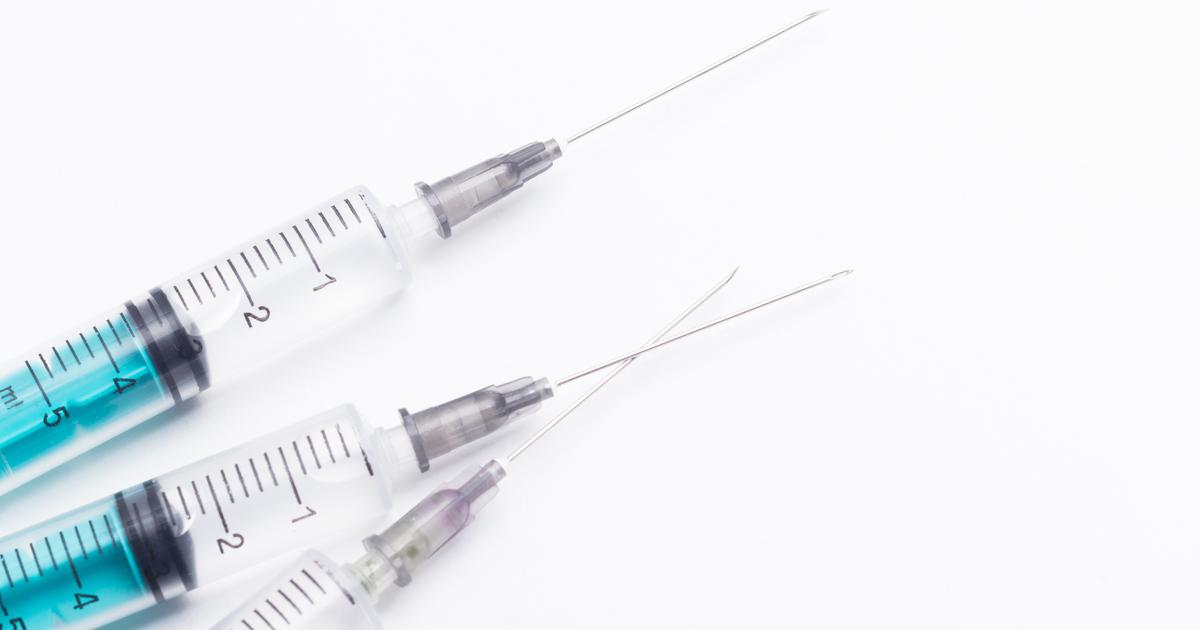"France has prevented having more German vaccines".
The title in large letters crosses the home page of the website of the German newspaper Bild, this Tuesday, January 5.
For several weeks, the very popular daily has been echoing criticisms and suspicions across the Rhine on orders for Covid-19 vaccines placed by Europe.
All countries are supplied in proportion to their population, but for Germany the pill is bitter.
The country complains that it received a deemed insufficient number of doses of the product Pfizer-BioNTech, which was the first to be marketed in Europe.
Decryption
How did Europe order its doses of vaccines?
The 27 member countries of the EU decided last spring to join forces to order from different manufacturers.
Over the months and the signing of contracts, nearly two billion doses of anti-Covid vaccines have been pre-ordered from six manufacturers.
The French Sanofi is supposed to deliver 300 million doses.
For the American-German alliance Pfizer / BioNTech, a first contract for 300 million doses, including 100 million in option, was signed on November 12, and another equivalent was signed on Friday, January 8.
"We are stronger when we negotiate for 450 million inhabitants [the population of the European Union, Editor's note] than for 67 million French people", was justified in November in the entourage of the Minister Delegate in charge of Industry, Agnès Pannier-Runacher, contacted by the Parisian.
Where does the controversy come from?
On December 18, a few days before the Christmas holidays and while several European countries impose new restrictive measures, the German weekly Der Spiegel recounts that the German Minister of Health had wanted Europe to pre-order "more" doses. by Pfizer-BioNTech.
This would not have been possible because some countries would not have liked Sanofi to be less well "served".
At the time, the second contract for 300 million Pfizer / BioNTech doses had not yet been signed.
And if France is not mentioned by name, it is necessarily targeted since the head office of Sanofi is in Paris.
The particular context of the time was perhaps not foreign to these revelations.
In fact, Pfizer-BioNTech is then in the process of obtaining a marketing authorization in Europe (the European Medicines Agency will validate its vaccine on December 21).
Conversely, Sanofi has just announced significant delays after noting, during clinical trials, a lack of effectiveness of its product on the elderly.
Its vaccine developed in partnership with the British group GSK should ultimately not be available before the fourth quarter of 2021.
READ ALSO>
Covid-19: but what can the Sanofi vaccine still be used for?
On Monday January 4, the German daily Bild wrote in turn that "the contract [with Sanofi] was mainly signed because of pressure from the government in Paris".
As for Der Spiegel, no evidence is provided, but the German political class seizes the subject.
"The French insisted that the quantities of German doses are not too large compared to that of Sanofi, although this vaccine is far from ready", asserts Monday evening on the ARD channel the deputy of the SPD and expert in public health Karl Lauterbach.
At the same time, Germany is facing supply difficulties in some regions.
"We must also recontextualize this controversy in a German political context of succession to Angela Merkel, to whom we suddenly reproach many things", points out the political scientist Patrick Martin-Genier, specialist in European issues.
The conservative chancellor will in fact leave her post next fall, and the SPD would like to take power.
What is France responding to?
For the French authorities, these accusations are irrelevant.
" It is bullshit.
France or any other country has never asked to lower the number of doses of contracts that have been signed.
It's wrong.
We must not lie about these things ”, rebelled on December 21 on France Inter the Secretary of State in charge of European questions, Clément Beaune.
Newsletter It pays me
The newsletter that improves your purchasing power
Subscribe to the newsletterAll newsletters
“This hypothesis is totally fanciful,” Agnès Pannier-Runacher said at the same time on Twitter.
And to wonder: "How do you explain in this case that the contracts signed with Astra Zeneca, Curevac (German company) and Janssen include more doses than those ordered from Sanofi?"
".
These three groups have signed agreements for around 400 million doses each, with a part between 100 and 200 million optional.
Asked this Thursday on these various controversies by BFMTV, the Minister of Health Olivier Véran denounced for his part a "stinking ball".
This hypothesis is totally fanciful.
How do you explain in this case that the contracts with Astra Zeneca, Curevac (German company) and Janssen include more doses than those ordered from Sanofi?
- Agnès Pannier-Runacher (@AgnesRunacher) December 20, 2020
At Le Parisien, the Sanofi group assures that it has "strictly complied with the regulations" during the negotiations and "not being able to comment on the agreements concluded between the European Commission and any other vaccine manufacturer".
Will the contracts be made public?
A solution to clarify this subject and possibly end all or part of the controversy could be to make public the contracts signed by Europe with vaccine manufacturers.
Many information such as purchase prices are not known, which is raised by several MEPs.
"We should at least know the cost structure, in order to know if we are paying at the right price, as well as the mechanism of legal responsibility", carried away this fall in Le Parisien the MEP Pascal Canfin (Renew Europe).
READ ALSO>
Vaccines: how Europe is recovering its health
On Thursday, European Health Commissioner Stella Kyriakides once again ruled that "the disclosure of confidential information at this time would compromise our ongoing negotiations".
"Once the process is completed, we will see what elements can be published," said the spokesperson for the European Commission in France, Guillaume Roty, to the Parisian, specifying that this will have to be done with the agreement of the manufacturers.









